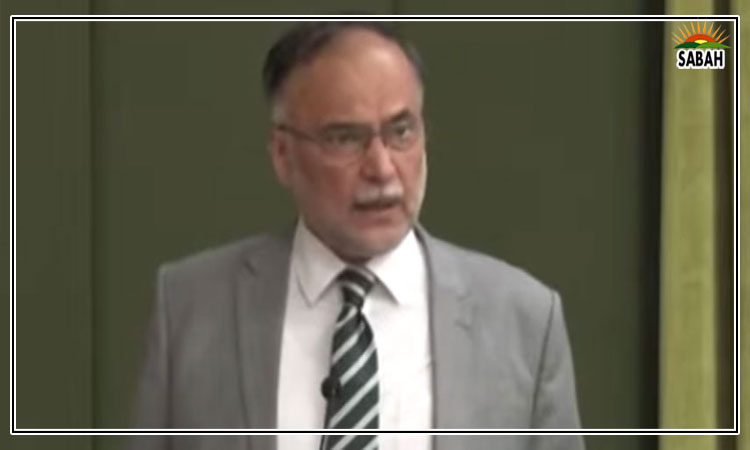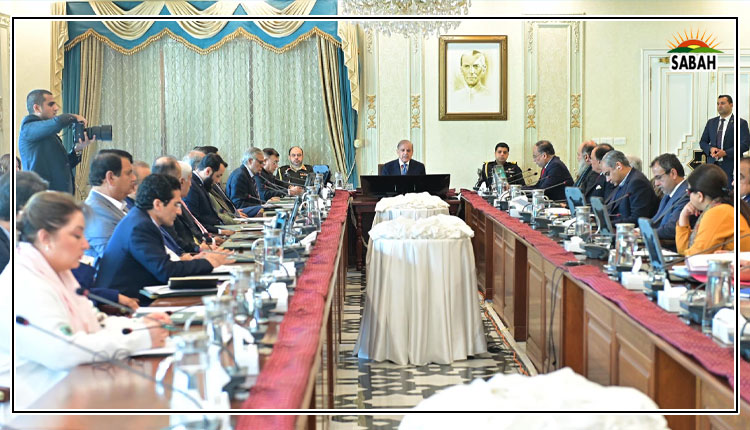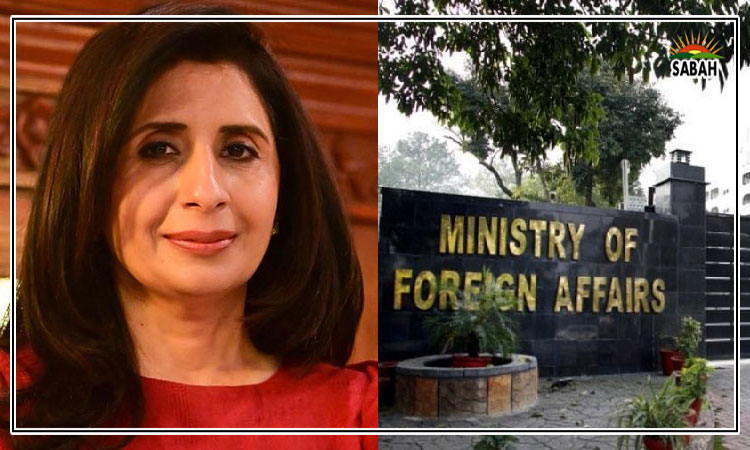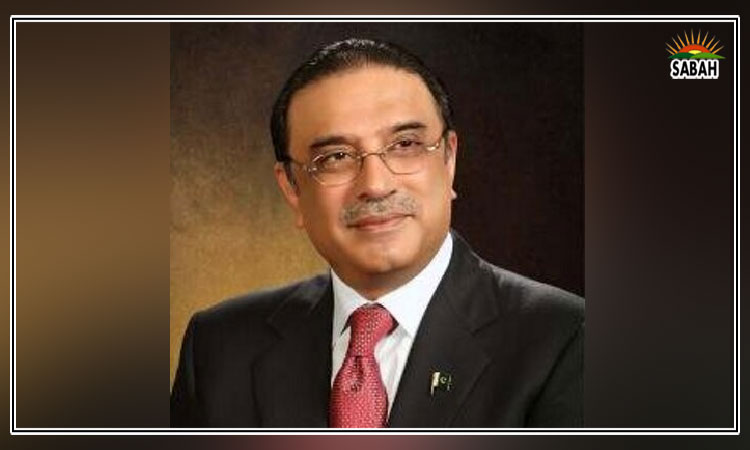Shaza Fatima Khawaja stresses the need for adopting Artificial intelligence
ISLAMABAD, March 8 (SABAH): Member of National Assembly Shaza Fatima Khawaja has stressed the need for adopting Artificial intelligence (AI) and machine learning by modernizing our education system and curricula to prepare the youth for skilled jobs, if we really want to empower them and bring them on a par with rest of the world.

She was speaking at a seminar titled, “The Challenges and Opportunities of Artificial Intelligence (AI) & Cybersecurity in Pakistan”, organized by Sustainable Development Policy Institute here.
The legislator said that the world is rapidly adopting AI, but Pakistan lags far behind the comity of nations. Leveraging AI technologies can help in establishing an effective governance system and transparency, and safe city traffic monitoring systems are the big examples in this regard, she remarked.

Dr. Abid Qaiyum Suleri, Executive Director, SDPI said: “we are living in the age of unparalleled information and have become knowledge managers with limitless data, which is easily accessible”. However, with this opportunity, he added, “we must take on the responsibility for the ethical use of information”.
Prof. Dr. Nasir Mahood, Vice-Chancellor, AIOU stressed the need for corresponding our response speed to the speed of AI transformation, increase investment in AI and ICT sector to promote indigenization to match the pace of rest of the world. He further said that improving the AI ecosystem in Pakistan will also help retain the indigenous talent and boost economic development.
Brigadier (retd) Muhammad Yasin, Senior Advisor Emeritus, SDPI said that AI is modernizing industries, agriculture, manufacturing, etc. to boost productivity. “While AI can transform the cybersecurity landscape, its rapid adoption often leaves critical protection gaps causing breaches into critical government and private data. Therefore, it is crucial to modernize cybersecurity infrastructure to meet these emerging challenges.” Referring to research reports in 2023, he said, 25% of Pakistani internet users faced online threats, which demands that an AI-based cybersecurity infrastructure should be set up for users and data protection sooner than later.
Dr. Mukarram Khan, Director-General, Pakistan Telecommunication Authority, said that PTA is using big data and trend analysis to track cybercriminals, improve telecommunication services and has introduced Cybersecurity Strategy 2023-28 to meet emerging cybersecurity challenges.
Mudassir Hussain, Vice-President, Jazz, said that cybersecurity regulations must take a whole-of-tech approach. He called for avoiding over-regulations for sustainability and creating demand for AI use in public procurement systems and private sector.
Muhammad Aslam Hayat, Senior Policy Fellow, LIRNEAisa said that leveraging AI in cybersecurity can enable much faster response, threat detection, and prevention for better cybersecurity. He stressed that cybersecurity regulatory frameworks must be developed to ensure interpretability, scalability, and innovation.
Dr. Yasir Ayaz, Chairperson of National Centre for Artificial Intelligence, NUST highlighted that revenues from AI software market is expected to reach $126 billion by 2025 with 37% organizations having implemented AI in some form already and AI use in enterprises has grown by 270% in the past four years. According to Forbes, he said, AI is expected to create 133 million new jobs by 2030 while displacing around 400 million workers from 2016 to 2030, he said. AI will boost employment more than current projections; however, it calls for embracing the emerging technology and upskilling the workforce, he maintained.
Dr. Mehreen Afzal, Executive Director, N-CERT said that policymakers must carefully assess how to regulate the use of AI technologies, balancing the need to keep powerful weapons out of the hands of malicious actors without stifling innovation.
Dr. Faisal Nawaz, Deputy Director-General, Artificial Intelligence, Ministry of Defense stressed the need for collaboration and linkages with countries leading the AI transformation, data sharing mechanisms and long-term national policies and plans to effectively embrace and utilize AI.
Zakir Syed, Director, Internet Governance, Ministry of Information Technology, remarked that global AI market is expected to reach the potential of $1 trillion by 2030. By channelizing regulatory infrastructure and skill development for labour through government-industry and academia linkages, a highly skilled AI trained workforce can be developed in the next five years, he added.
Dr. Hajra Ahmed, Dean of Faculty of Sciences, AIOU, said Pakistan must equip its students to adapt to these emerging trends by updating our curricula through well-thought-policy reforms.
Dr. Kashif Naseer, Associate Professor, University of Limerick, Ireland highlighted that FIA Cybercrime Wing registered 84,764 cybercrime complaints in 2020 with financial fraud through social media being most common complaint. The emerging cybercrimes can be addressed through AI threat detection and prevention, automating incident response, and predicting future cyber-attacks through trend and data analytics, he added.












